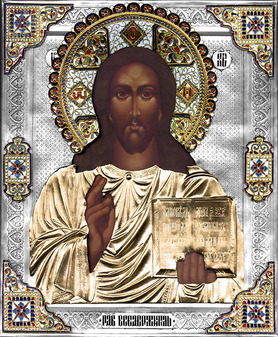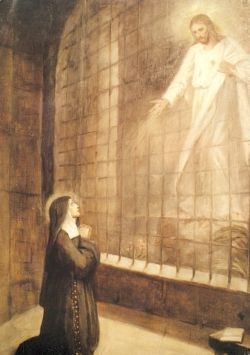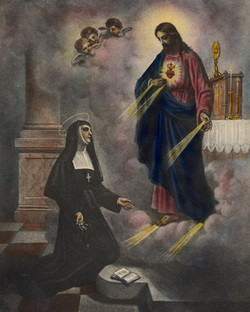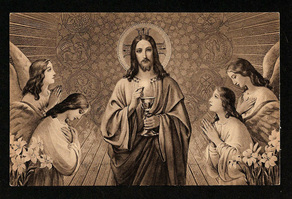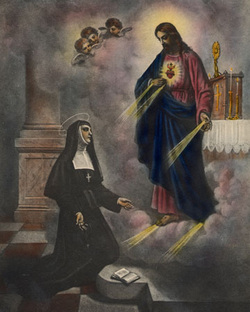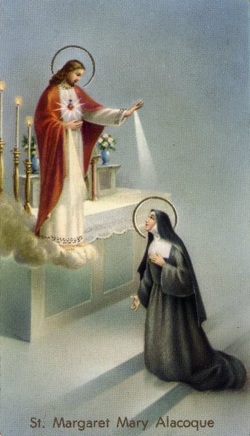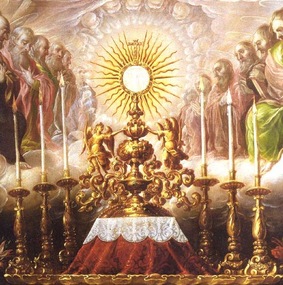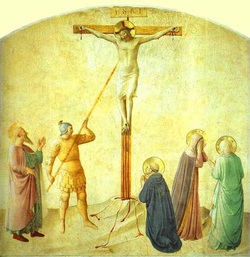
Sermon by St. Bonaventure the Bishop
In order that the Church might be taken out of the side of Christ, in his deep sleep on the Cross, and that the Scripture might be fulfilled which saith: They shall look on him whom they pierced: it was divinely ordained that one of the soldiers should pierce his sacred side with a spear, and open it. Then forthwith there came flowing out blood and water, which was the price of our salvation, pouring forth from its mountain-source, in sooth, from the secret places of his Heart, to give power to the Sacraments of the Church, to bestow the life of grace, and to be as a saving drink of living waters, flowing up to life eternal for those who were already quickened in Christ. Arise, then, O soul beloved of Christ. Cease not thy vigilance, place there thy lips, and drink the waters from the fount of salvation.
Because we are now come to the sweet Heart of Jesus, and because it is good for us to be here, let us not too soon turn away therefrom. O how good and joyful a thing it is to dwell in this Heart. What a good treasure, what a precious pearl, is thy Heart, O most excellent Jesu, which we have found hidden in the pit which hath been dug in this field, namely, in thy body. Who would cast away such a pearl? Nay, rather, for this same I would give all my pearls. I will sell all my thoughts and affections, and buy the same for myself, turning all my thoughts to the Heart of the good Jesus, and without fail it will support me. Therefore, o most sweet Jesu, finding this Heart that is thine and mine, I will pray to thee, my God: admit my prayers into the shrine of hearkening: and draw me even more altogether into thy Heart.
